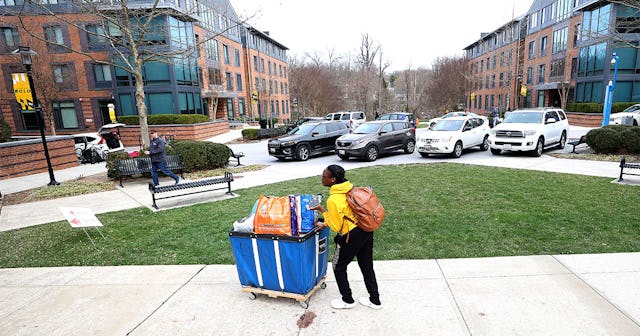Schools All Over The Globe Shut Down In Attempt To Slow Coronavirus

As governments try to slow the spread of the novel coronavirus, schools across the globe go on hiatus
With the number of confirmed coronavirus cases now having surpassed 120,000 worldwide, the health crisis has prompted schools around the globe to temporarily close their doors. According to the United Nations Educational, Scientific and Cultural Organization (UNESCO), a record number of children and youth are currently not attending school due to temporary or indefinite closures mandated by governments. Aimed at slowing the spread of COVID-19, these closures — as of press time — are impacting nearly 372.3 million children.
So far, 39 countries in Asia, Europe, the Middle East, North America, and South America have announced and/or implemented school and university closures. Of those countries, 22 have shut down schools nationwide and 17 have resorted to localized school closures to try to thwart the coronavirus spread. By UNESCO’s estimate, if those countries also order nationwide school and university closures, the estimated total of children and youth affected will rise by more than 500 million.
In North America alone, according to an analysis by Education Week, more than 850,000 students are affected as of March 11. This week alone, universities and K-12 learning institutions from California to New York have announced both cancellations and alternative structures, such as distance learning.
School closures are a last resort, and the adverse consequences of closures on this level are effectively unprecedented. Not only do they disrupt students’ learning and parents’ ability to both work and care for their children during school hours, but they also compromise the nutrition of children and youth who rely on school’s free or discounted meals for food.
It’s an unimaginably difficult call for school leaders to have to make. However, with the World Health Organization officially declaring the coronavirus a pandemic, it’s also a proven method for slowing the spread of disease — and so arguably a necessary response to this global health crisis.
If your children are affected by the coronavirus school closures (or you expect they will be soon), there are a few things UNESCO recommends to educators that also apply to parents. Provide as much psychosocial support as possible, since kids tend to struggle with the absence of social contact with friends when schools are closed. Also, emphasize that while they’re home, it doesn’t mean school is out. It’s important in these situations to preserve the continuity of learning, considering we don’t yet know how long schools will keep their doors shut over coronavirus.
This article was originally published on